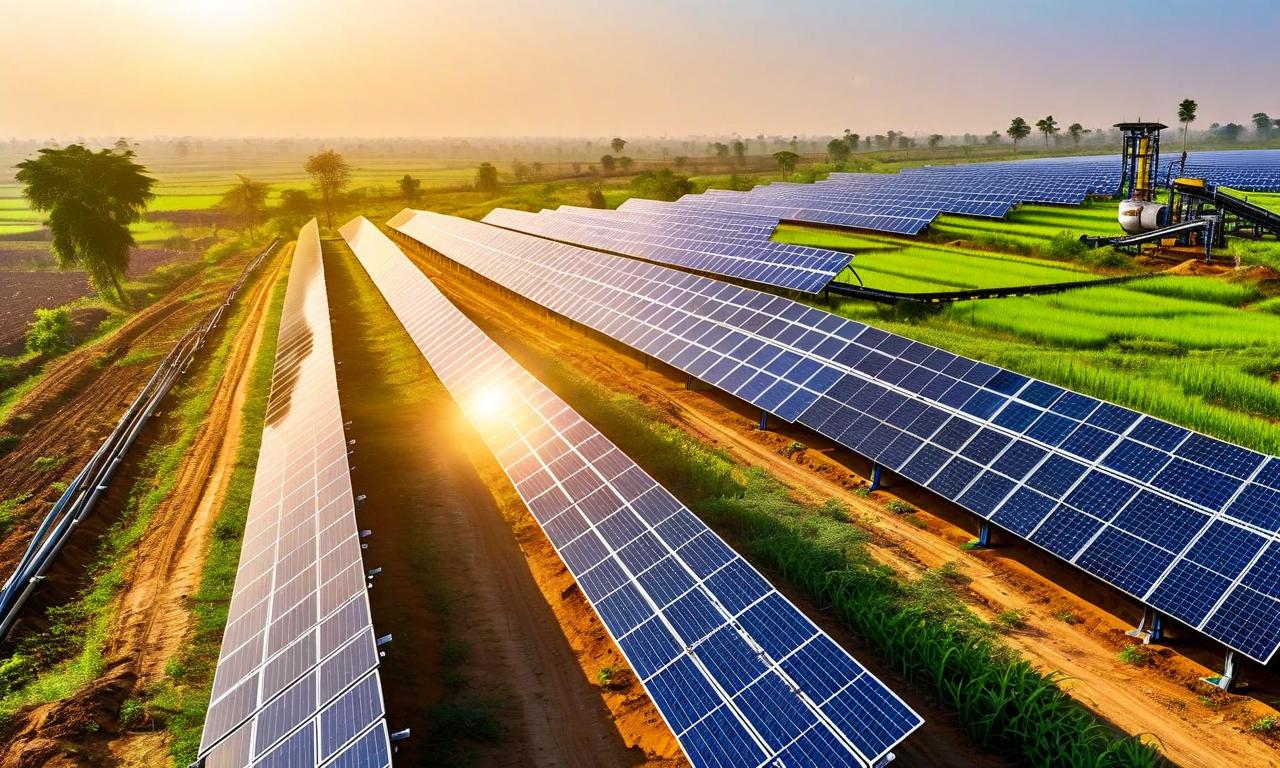Oil Prices Steady as Trump-Putin Summit Looms, Global Crude Supply in Focus
Oil markets are holding steady as investors await the outcome of a summit between U.S. President Trump and Russian President Putin in Alaska. The talks, focused on ending the Ukraine conflict, could significantly impact global crude supply. Russia, the world's second-largest crude exporter, currently relies on discounted oil sales to China and India. Trump has doubled tariffs on Indian goods to 50% in response to Russian oil purchases and warned of 'severe consequences' if Putin doesn't agree to a ceasefire. Analyst Zhou Mi suggests potential U.S.-Russia cooperation could have bearish implications for oil prices. Oil prices have declined 10% this year due to Trump's trade policies and increased OPEC+ supply, with expectations of a record supply glut by 2026.

*this image is generated using AI for illustrative purposes only.
Oil markets are holding steady as investors eagerly await the outcome of a high-stakes summit between U.S. President Donald Trump and Russian President Vladimir Putin in Alaska. The meeting, which could significantly impact global crude supply, has captured the attention of oil traders worldwide.
Summit Expectations and Potential Outcomes
The upcoming talks between the two leaders are primarily focused on ending the conflict in Ukraine. President Putin has praised Trump's efforts to resolve the situation, while Trump himself has estimated a 25% chance that the meeting might not succeed. The outcome of this summit could have far-reaching implications for the global oil market, as any changes to U.S. sanctions on Russia would directly affect global crude flows.
Russia's Role in Global Oil Supply
Russia's position as the world's second-largest crude exporter, trailing only Saudi Arabia, underscores the significance of these talks. Currently, Russia relies heavily on discounted oil sales to China and India, a strategy that has helped it navigate the challenging landscape of international sanctions.
U.S. Trade Pressures
In a move that has raised eyebrows in the international community, President Trump has doubled tariffs on Indian goods to 50%. This action is seen as a punitive measure against India's purchases of Russian crude oil. Trump has also issued a stark warning, threatening "severe consequences" if Putin fails to agree to a ceasefire in Ukraine.
Market Implications
Analyst Zhou Mi suggests that while a direct ceasefire might be unlikely, any potential cooperation between the U.S. and Russia could have bearish implications for oil prices. This perspective adds another layer of complexity to an already volatile market situation.
Current Oil Market Trends
The oil market has been under pressure this year, with prices declining approximately 10%. This downturn is attributed to concerns over Trump's trade policies and increased supply from OPEC+ nations. Adding to the bearish sentiment, there are expectations of a record supply glut by 2026, which continues to weigh heavily on market outlooks.
Conclusion
As the world watches the Trump-Putin summit unfold, oil markets remain in a state of cautious anticipation. The potential for significant shifts in global crude supply dynamics, coupled with ongoing trade tensions and OPEC+ production decisions, keeps investors on edge. The outcome of this high-level meeting could set the tone for oil prices in the coming months, making it a crucial event for energy markets worldwide.

























